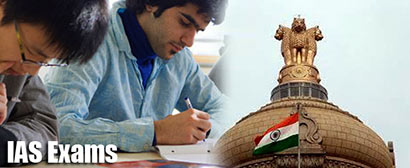Sri Lanka must ask India not to remove Pali Language from its Indian Administrative Service Examination

– Shenali D Waduge –
India’s projection internationally as a country interested in preserving the Buddhist heritage and Indian Government promotions to encourage tourists to visit Buddhist sites in India as a custodian of Buddhism, has come in for a rude shock with the news that the Government of India has recently removed Pali – an ancient classical language being the language of propagation of Buddhism – as a subject from the main examination of the Civil Services (popularly known as Indian Administrative Services i.e. IAS) of India, 2013, which were under the purview of the UPSC (Union Public Service Commission). This news is most disturbing to the Buddhists the world over.
The inclusion of Pali in this competitive examination was one of the major reasons that attracted many young prospective candidates for the Indian Administrative Service to opt to engage in Pali and Buddhist Studies. The examination was treated as a major lifeline in the preservation of the Pali language, and it was credited to have played an important role in stemming the decline of the study of Buddhism in its Indian homeland.
Pali is the language that has to a great extent encapsulated the Buddha’s teachings as contained in the Tipitaka, which is considered a treasure trove of Buddhist knowledge and an important carrier of the Buddhist doctrine throughout the world.
More importantly Theravada Buddhist countries such as Sri Lanka, Thailand, Myanmar, Cambodia, Laos and communities practising Theravada Buddhism in various other countries both in Asia (Vietnam, Indonesia, Malaysia, Nepal, and Bangladesh) and the West, are bonded by the common thread of Pali, an important component in Buddhist studies.
India which has shown a great interest in recent years in holding various workshops and seminars in Buddhist Asian countries refocusing attention to India’s strong historical links to Buddhism would suffer an irreversible set back in its current efforts to win over Buddhist countries in Asia by this silly policy decision to drop Pali Language from its IAS examination.
The Pali language should not be allowed to become a victim of Indian bureaucracy and other hostile groups funded mostly from outside India who have a hidden agenda to weaken the status and influence of India’s indigenous religions.
As a leading Buddhist nation, Sri Lanka’s President on behalf of the Buddhists in Sri Lanka and the world over must appeal to India not to turn its back on its Buddhist heritage and abandon in particular Pali – the language that Buddhism was spread globally.
In view of Pali being an ecclesiastical language of Buddhism and very close to Magadhi (language of the Buddha) the Buddhists of Sri Lanka will give their whole hearted backing to the President in any such endeavour.
It is with great prestige that Sri Lanka stands proud to be a Buddhist nation.
Latest Headlines in Sri Lanka
- Namal Rajapaksa summoned to court over Krrish transaction February 5, 2025
- Sri Lanka to operate immigration department 24/7 to speed up passport issuance February 5, 2025
- Sri Lanka announces new paddy purchase prices from February 6, 2025 February 5, 2025
- Sri Lanka launches national survey on toque macaque February 5, 2025
- Sri Lankan MPs’ meal price jumps over four times from Rs. 450 to Rs. 2,000 February 5, 2025



indians are bloody fooled and foolish, thaz y they r still worshiping those muds.
Sri Lanka should ask India to promote Indian Tribal Languages as well, as they are fast disappearing and are are related to the Native Veddah, Yakkaanf Nagas as well.
After all these are living languages, whereas Pali is dead, like Latin, and is Preserved in Lanka and elsewhere.